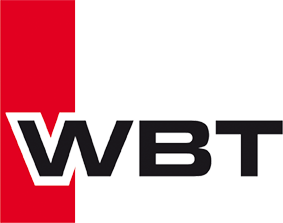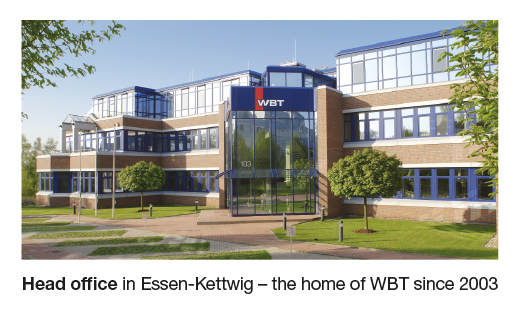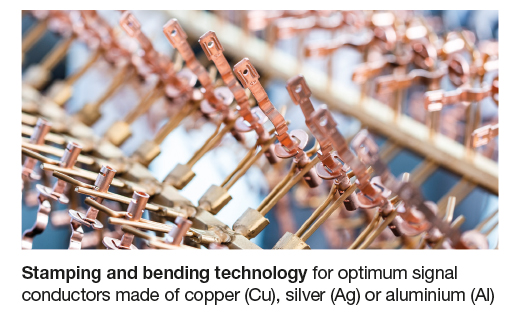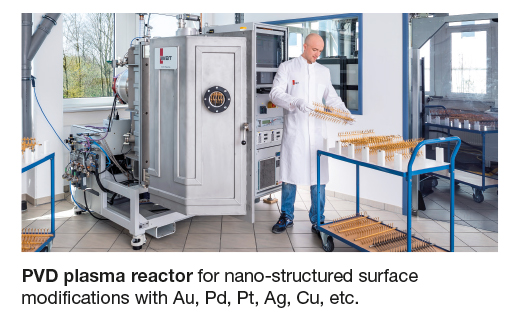WBT-Industrie GmbH
WBT-Industrie GmbH
Im Teelbruch 103
45219 Essen
Phone: (02054) 87 55 2 - 0
Fax: (02054) 87 55 2 - 22
E-Mail: info[at]wbt.de

Company portrait
German Engineering!
Since 1985, WBT has been specialising in the development and production of high-quality broadband connectors for state-of-the-art electronics. Based on precision turned parts, new standards in quality have been set. This technology has also put tight limits on attempts to improve the transmission parameters of connectors. The used brass reliably ensures stability and conducts signals but leaves little room for adjusting the increasingly sophisticated electronics.

The solution is still WBT-nextgen™!
The nextgen™ connector series is made from a combination of tailor-made functional materials such as copper and plastic.
The key success factors for nextgen™ are:
- high conductivity and large current capacity as well as high broadband capability
- low eddy current problems (skin effects)
- optimised for mass storage effects and vibration-proof

In 2019, when designing the conductor surfaces, the electro-plating process used until then was replaced by the cutting-edge PVD* plasma process. This change in method for the gold coating process is another development success for WBT. Thanks to this technology, WBT is creating a pure, flawless and more densely structured (crystalline) surface in a high vacuum, which allows the phase-correct transmission of complex signals with an even higher bandwidth.
WBT develops and manufactures all connectors in-house. All products are 100% made in Germany!
The individual development steps allow WBT to make its products in a resource-efficient and environmentally-friendly way. WBT is committed to sustainability – not only in technology but also in production.

WBT-Industrie GmbH
Industry sector
- Mechanical engineering, precision engineering
- Nanotechnology
Main focus
- Electromechanical connectors for consumer electronics
- Medical devices and measuring technology
Main principles
- Implementation of the highest quality standards
- Effective and resource-efficient production
- Protection of jobs in the domestic economy

